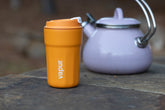You have probably seen videos and pictures of piles of garbage in a landfill or photos of plastics in oceans and you are thinking, “What can I do to make a difference?”
Well, the good news is that there is so much you can do. You see, the truth is that most of the garbage we see around in our environment and in our oceans comes from our shopping carts. Making a difference starts by you making the decision of adopting zero waste shopping as a way of life. The secret to zero waste shopping is to be purposeful and mindful about your shopping choices i.e. carry your own containers, keep away from products or items with plastic packaging and always buy from the bulk section.
Here are seven tips on how to conduct a zero waste shopping
1. Plan Ahead
This basically involves identifying products, food or groceries that you are running low on and developing a list comprising all these items. You can write this on a fridge magnet notepad or on a chalkboard or even on a piece of paper. This will enable you to avoid purchasing products that are not a priority. Apart from helping you budget, it also trains you to be a disciplined shopper. Most of all, you will be amazed on how a little planning can go a long way in keeping you on track towards a zero waste lifestyle.
2. Carry a shopping bag
Never go to the shopping centre or grocery store without your shopping kit. This could include; reusable shopping totes for holding your groceries, a couple of cloth bags and glass jars for bulk products and other similar groceries. Bring with you enough jars and shopping bags that will be able to carry all your shopping. You should also know the empty weight (tear weight) for every jar and bag so as not to get charged for the container weight. If you do not know the tare weight, you can always ask the cashier before you shop, if they can assist in weighing the containers.
3. How to shop
When buying bulk items, it is always wise to take a picture of the labels and info on the bins. This will enable you to capture some important information such as the nutritional information, ingredients, mode of preparation as well as the bin number for check-out. You can also arrange the products according to the order on your phone for easy and quick checkout. If from your list, you can’t find some of the items in un-packed form, you can always opt for paper, metal or glass packed alternatives as these are more environmentally friendly. Alternatively, you can also decide to make them yourself. Some products such as mayonnaise, yogurt and cheese are not that difficult to make.
4. Choose vegetables
Another smart way of minimizing your harm on the environment is by opting for a more vegetable-kind of diet. This is also friendly to your pocket as most vegetables are cheaper than processed foods and even cereals. When shopping for vegetables, always choose the reusable organic bags.
5. Avoid single use product
Another important point to note when shopping for personal and household items is that not all products are eco-friendly and therefore you should always try to identify reusable or last-objects. A good example of a personal reusable product is the LastSwab which is basically a reusable swab that is environmentally friendly, sustainable and hygienic. It is a perfect replacement for cotton buds, swabs and Q-tips.
6. Buy enough
Food waste is a massive problem. It is said that if food waste was a country, it would have been the largest emitter of harmful gases after the US and China. It is therefore essential that you only buy enough that will last you until your next shopping without them getting spoilt. To achieve this you will need to take stock of the food items and groceries in your pantry and fridge, before deciding on what to buy.
7. Perimeter shopping
Perimeter shopping as the name suggests entails shopping along the outer perimeter of the shop or store and avoiding the inner sections. This is based on the argument that the majority of the stores keep their frozen, refrigerated and fresh produce on the perimeter of the shop. If one was to select products from the perimeter, they are less likely to select processed and packaged products that contain high amounts of sugars. Therefore, if you intend to avoid products with a lot of packaging material, then it is wise to shop at the perimeter.
Lastly, always remember the 5Rs, Refuse, reduce, reuse, recycle and Rot or compost and you will have done your part in making and keeping this beautiful planet a better place for our generation and the next generation.



